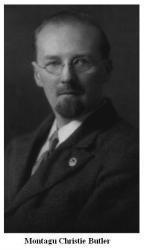Adapter of "Praise God, from Whom All Blessings Flow" in The United Methodist Hymnal Gilbert H. Vieira, born in Lawrence, Mass., on May 27, 1926, lived in Cambridge, Mass. until 1933 when his father was appointed pastor of a Methodist Church in Oakland, Calif. After high school he enrolled in the University of California, Berkeley, earning a B.A. degree; followed by an M.A. degree from Boston University, and a B.D. degree from Pacific School of Religion. While earning his B.D. degree he met his soul-mate, Dottie, in Hayward, Calif., and they were married two years later in1952.
The Rev. Vieira pastored several Methodist churches in central California before his appointment to Mt. Tamalpais United Methodist Church, Mill Valley, in 1973. In that church there was an active feminist group of young women who expressed their concern for the gender language used in the traditional Doxology written by the English clergyman Thomas Ken in 1674. They believed “…praise HIM” and “…praise FATHER, SON…” might unnecessarily distract some women from examining the holy truths of Christianity. Pastor Gil was inspired to write a gender-free poem which preserved the message of the traditional Doxology, and he arranged it with the stirring music of Vaughn Williams to make it singable. After Mt. Tamalpais UMC, he was appointed to Lafayette UMC and then retired. They built a home in Colfax, Calif., joined the Colfax United Methodist Church (UMC), and enthusiastica0ly preached whenever and wherever he was needed.
Around 1986 the United Methodists charged UM Publishing House in Nashville, Tenn., to create a new UM hymnal. One young lady on the new hymnal committee had been a member of the youth group of a church where Gil Vieira had been pastor. When a copy of his revised Doxology came before the committee, this young lady remembered her former pastor, and the committee decided to include it in the new hymnal, which was first published in 1989.
The present popularity of the revised Doxology is a tribute to the pastoral style that Gil Vieira always uses with the individuals in the flocks he shepherds. He listens intently, creates a joyful experience, and glorifies God in all he says and does. He really believes what he wrote:
Praise God, from whom all blessings flow;
Praise God, all creatures here below:
Alleluia! Alleluia!
Praise God, the source of all our gifts!
Praise Jesus Christ, whose power uplifts!
Praise the Spirit, Holy Spirit!
Alleluia! Alleluia! Alleluia!
Prepared by Joe Hoffmann in 2017, used by permission
Gilbert H. Vieira


 My Starred Hymns
My Starred Hymns



